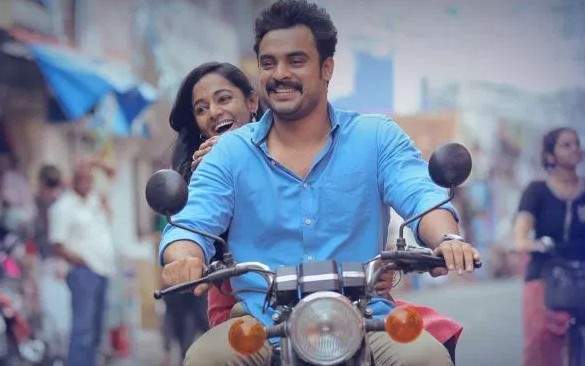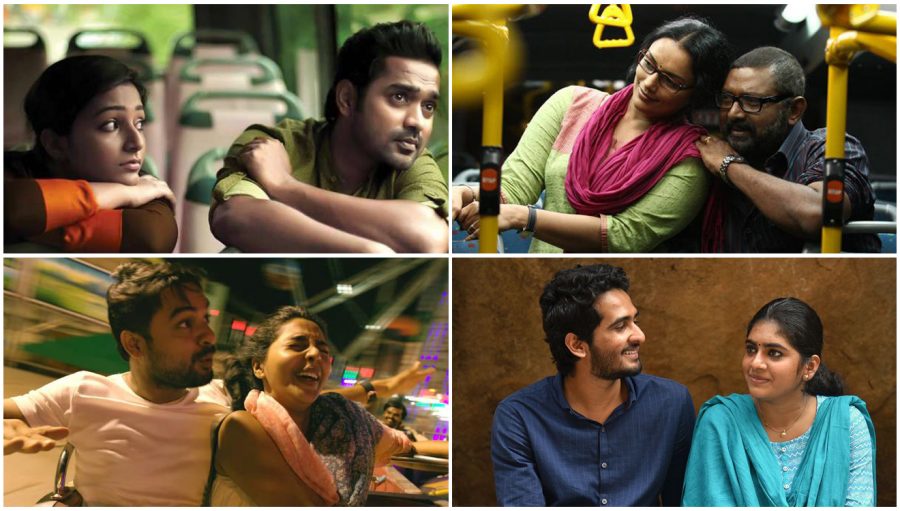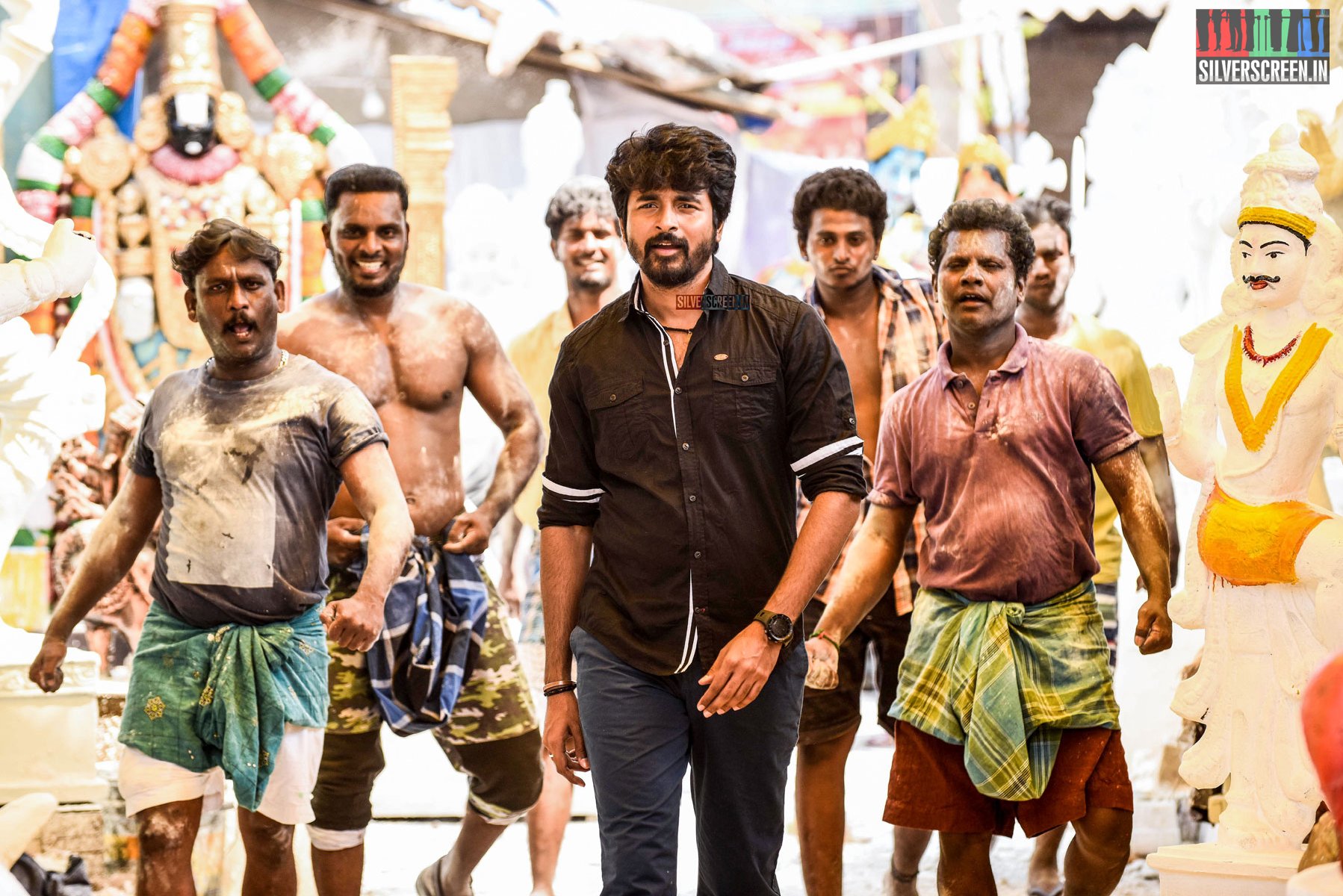Films on romance that stay off the beaten path, and explore and embrace love with all its complexities; some charming, some tragic, some plain fated
In Paul Thomas Anderson’s Phantom Thread (2017), Alma, a young waitress, goes on a date with a charming old man to whom she served food that morning. They dine at a nice place, and drive to his residence. Then, they sit across each other in his room, quietly, just looking. She interrupts the silence, “If we want to have a staring contest, you will lose.”
The lovers in Phantom Thread are constantly engaged in one-upmanship; trying to hold on to their individuality and power even as they fall deeper in love with each other. Among the many things this film is about, is the peril of love and the trap it can become. In Reynolds’ (Daniel Day Lewis) residence, which teems with his many employees, clients and an overbearing sister, Alma has to fight the feeling of being unwanted. Reynolds finds his orderly world disrupted with Alma’s arrival. “She doesn’t belong here,” he shouts during one instance, but another time, a sick and bed-ridden Reynolds asks Alma to never leave his side.
Aashiq Abu’s Mayaanadhi (2017), while not resembling Phantom Thread in form or plot, is centered around two young people who are constantly hurting each other. But, they are also inexplicably drawn to each other even though they barely have a reason to stay together. Appu and Mathan, two former lovers who parted ways on a bitter note, meet after many years in another city, under different circumstances. The man is now a murderer on the run, and the girl is chasing her dreams, desperately trying to put her life together. He wants to get back together with her, but she doesn’t, for the wounds he’d inflicted are still fresh. He lingers even as she pushes him away. She toys the man around, and he gladly obliges for he has nowhere else to go.

This turbulent love story isn’t about two people fighting social or political demons, but their own complicated feelings. Not many times before has Malayalam cinema set itself around two such characters, unabashedly modern and politically incorrect. He lets her down for want of money; she lets him down because she has a career to build, a life to make.
Mayaanadhi is one of the many recent Malayalam films in which the romance between the couple throbs with life, not superficially used in the plot for added flavor. Departing from bogus settings and situations, filmmakers like Aashiq Abu and Dileesh Pothan, and writers like Syam Pushkaran bring lovers to everyday places, subject them to ordinary situations, and portray relationships in fine detail, doing away with stock song-dance sequences. Parental opposition is no longer the villain in the love story, but more complicated and life-like factors. The woman is no longer introduced through a bubbly song, and the man isn’t a self-righteous hero.
This isn’t an entirely new phenomenon, though. Before Malayalam cinema wandered into the obnoxious realm of mediocre star-vehicles, half-baked teen love stories and family dramas soaked in conservatism in the 1990s, directors such as Padmarajan and Sathyan Anthikkad, in vastly different formats, rendered a poetic quality to romance on screen.
Mayaanadhi, like Padmarajan’s films, unfolds in intimate spaces, away from the usual social joints. At night, on the road underneath the newly opened metro rail bridge of Kochi; in apartments where roommates pour their hearts out to each other; in bed after a passionate lovemaking session when Appu rattles Mathan by telling him that sex isn’t a promise or even a reconciliation, breaking the heart of a man who was never looking for casual sex, but a companion for life.
Mayaanadhi ends on a tragic note, and as La La Land told the world, it’s alright if every love story doesn’t culminate on a ‘happily ever after’. In his interview to Silverscreen.in, National Award winning screenwriter Syam Pushkaran said, “Anyone can walk away from a relationship anytime. Happiness is what matters the most.” In Maheshinte Prathikaram (2016), which was written by Syam and directed by Dileesh Pothan, a woman breaks up with her longtime lover, the film’s protagonist, over a phone call. “This will do good to both of us,” she tells him in a broken voice. He is slides into a brief bout of depression, but at the end of it, goes to the church where her wedding is underway, watches her from a distance, and when her eyes fall on him, he smiles. The film doesn’t leave it there, but follows Mahesh back to his house, where you see him breaking down in tears.
Khalid Rahman’s Anuragakarikkin Vellam (2016) is a rare coming-of-age story of a young girl who gets dumped by her lover rather insensitively. The girl is shattered at first, but gradually picks herself up and moves on in life. In one of the most telling scenes in the film, she meets her former lover before her wedding to give him and herself closure. Although Anuragakarikkin Vellam proceeds from the POV of the man, it is this character, portrayed sensitively and with subtlety, that affects the audience.
Eeda, which released a week after Mayaanadhi, is a modern-day retelling of ‘Romeo And Juliet’, set against the violent party politics in Kannur. There is a strong sense of foreboding right from the opening scene where you see how inseparably tied violent party politics and individual lives are in Kannur. The lead couple are educated young people, working in a far away city, cut off from the damned life in their home town. They become friends, and immediately realise they have so much in common. They inch towards romance, and one evening, she grabs his hand and confesses it in a breath. Director B Ajithkumar keeps his characters grounded and real; placing them in everyday situations from where the hostile world that surrounds them becomes more starkly visible. They are in their early twenties, but their relationship comes across as deep and mature, more like a companionship than a cliched hormone-induced ride.
Recommended
Like Eeda, Mayaanadhi too is the kind of romantic drama in which love smells so much like imminent death. But instead of evoking a sense of foreboding, Aashiq Abu places a delicate romantic sequence right before the tragic climax portion. It’s only a matter of time before the police nab Mathan, but there is still a night left. In a story so millennial, would the characters resist the fleeting urges of the body for the sake of an uncertain future? Hence, we get the most beautifully conceived and shot lovemaking scene in Malayalam cinema in the backdrop of a song that flows in like a lullaby.
Breaking the usual pattern of romantic dramas where the plot ends when the lovers marry, cinematographer-turned-filmmaker Samir Thahir made Kali, a road thriller centered around a young married couple played by Dulquer Salmaan and Sai Pallavi. It explores the life of two youngsters in their early twenties who rebel against their families to get married to each other. They start leading an independent life in a city where they don’t have a support system. Slowly, differences emerge between them; the flaws and disagreements that seemed cute or inconsequential before the wedding, begin to look stark, and they aren’t sure how to over come them.
In Salt And Pepper (2011), two middle-aged people stumble into each other through a wrongly dialed call. He is an archaeologist, living a reclusive life like one of those antique pieces in his office. He drives an old Ambassador car, is averse to mobile phones, and doesn’t have a social life. She is a cine dubbing artiste with poor self-esteem, leading a lonely life. He buys a mobile phone to speak to her, and opens up to the world, one step at a time, like our parents learning the nuances of social media to find friends and feel less lonely. And she falls in love too; first with herself and then with him.

In Ranjith Shankar’s Ramante Eden Thottam, Malini (Anu Sithara), a married woman with a child, falls in love with a widower, Raman (Kunchakko Boban), and the film, with the help of Madhu Neelakantan’s romantic camerawork and Bijibal’s music, celebrates this ‘scandalous’ affair. In the director’s Punyalan Agarbathies, the plot revolves around the protagonist, Joy Thakkolkaran (Jayasurya), who is waging an exhausting battle against the investor-hostile political and bureaucratic mechanism in the state, hell-bent on ruining his dream industrial project. But what makes the most charming sub-track in the plot is Joy’s relationship with his wife, Anu (Nyla Usha), a public relations professional. She doesn’t have a lot of screen-time, but Ranjith sums up the warmth in their bond in a few well-staged scenes, such as the one where the couple ride a two-wheeler through Thrissur city around the midnight.
In Dominic Arun’s Tharangam (2017), a live-in-relationship is portrayed sans the usual brouhaha. It is shown as something very routine, without using it to make a statement. The couple, Malini (Shanty Balachandran) and Pappan (Tovino Thomas), share the house rent and even prepare to have a lovechild. In 2015, Mani Ratnam made an entire film (OK Kanmani, Tamil) on the commitment phobia of a couple who are in a live-in-relationship. Tara (Nithya Menen) and Adi (Dulquer Salmaan) have a dream career, amazing family and friends to support them, yet they almost break up because they fear marriage would tie them down.
If Dulquer and Nithya had a rather ordinary responsibility of serenading the audience with their youthful love, another couple in the film portrayed something more ideal and honest. Prakash Raj and Leela Samson played a couple in the sunset of their life. She is sliding into the blackhole of Alzheimer’s. He has come to terms with the fact that she is moving towards a no-return point. An Amour-like love that is a rebellion in itself.
*****



